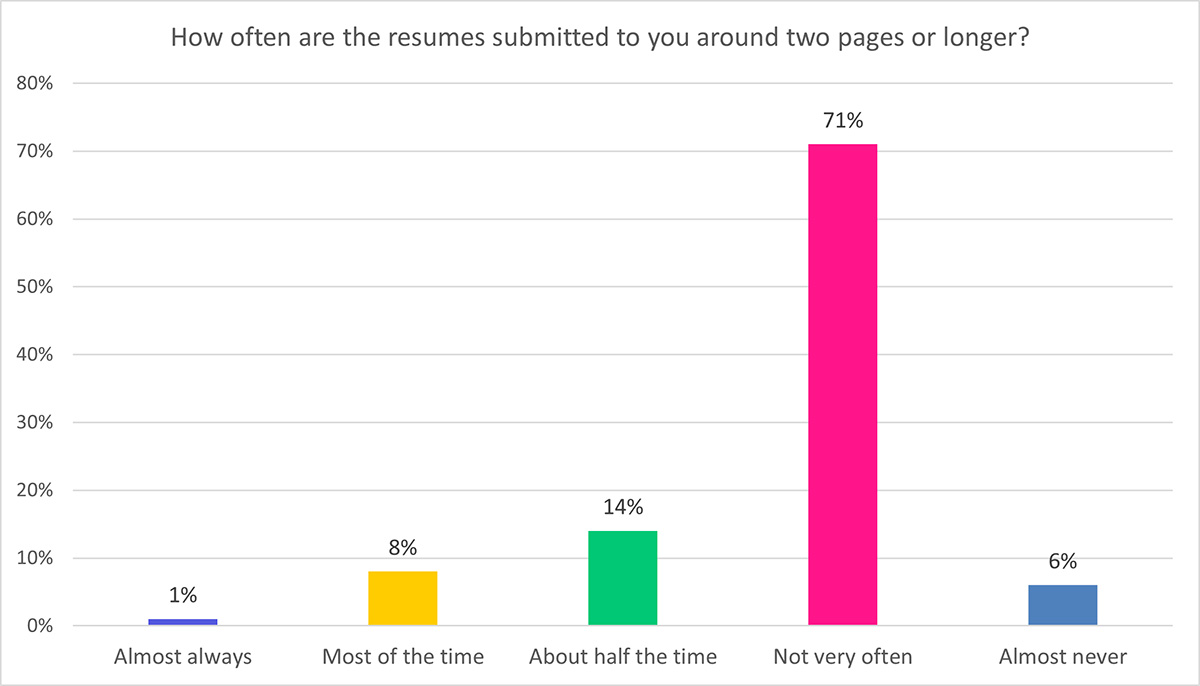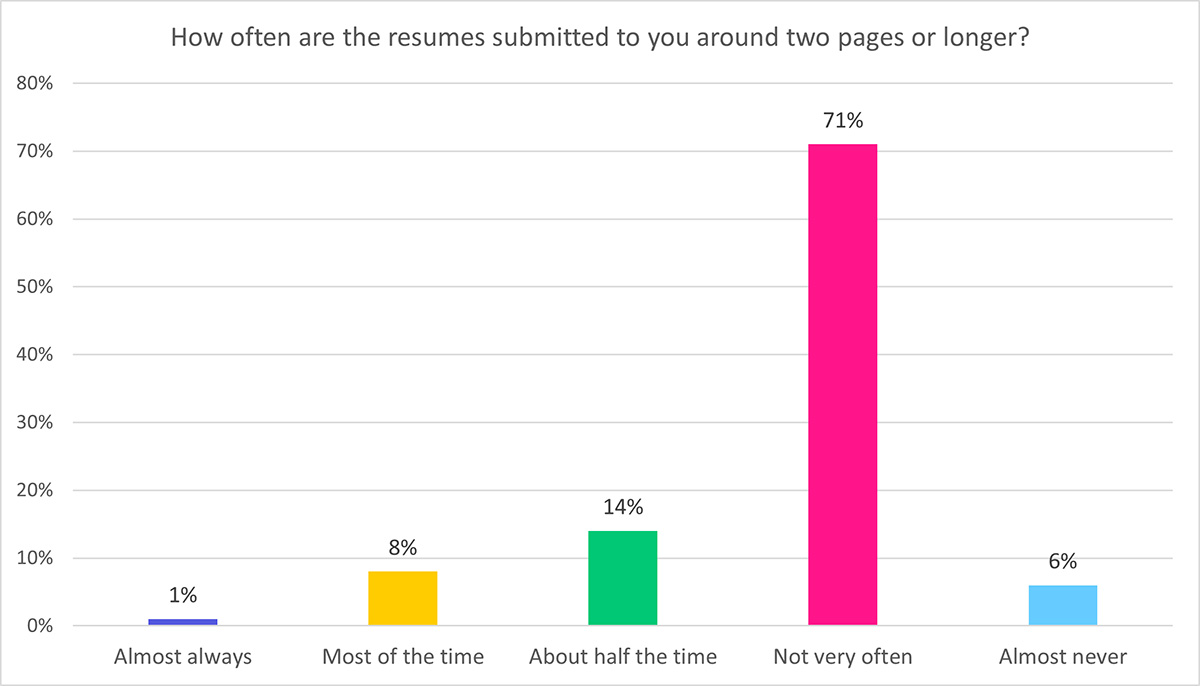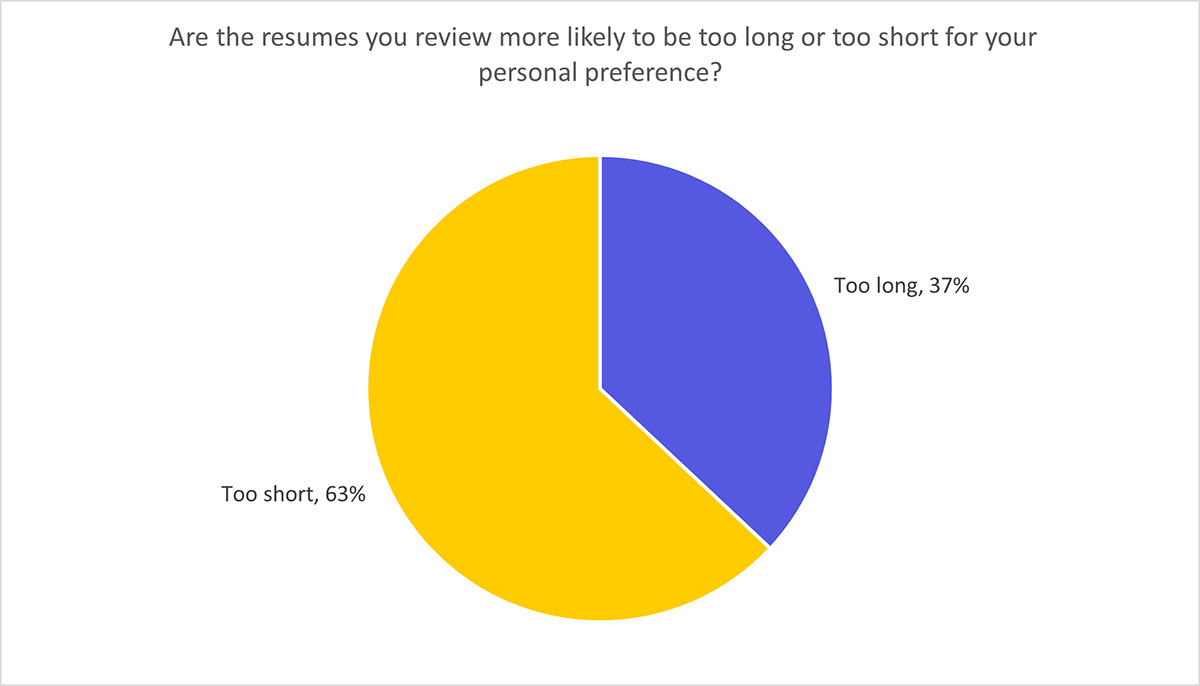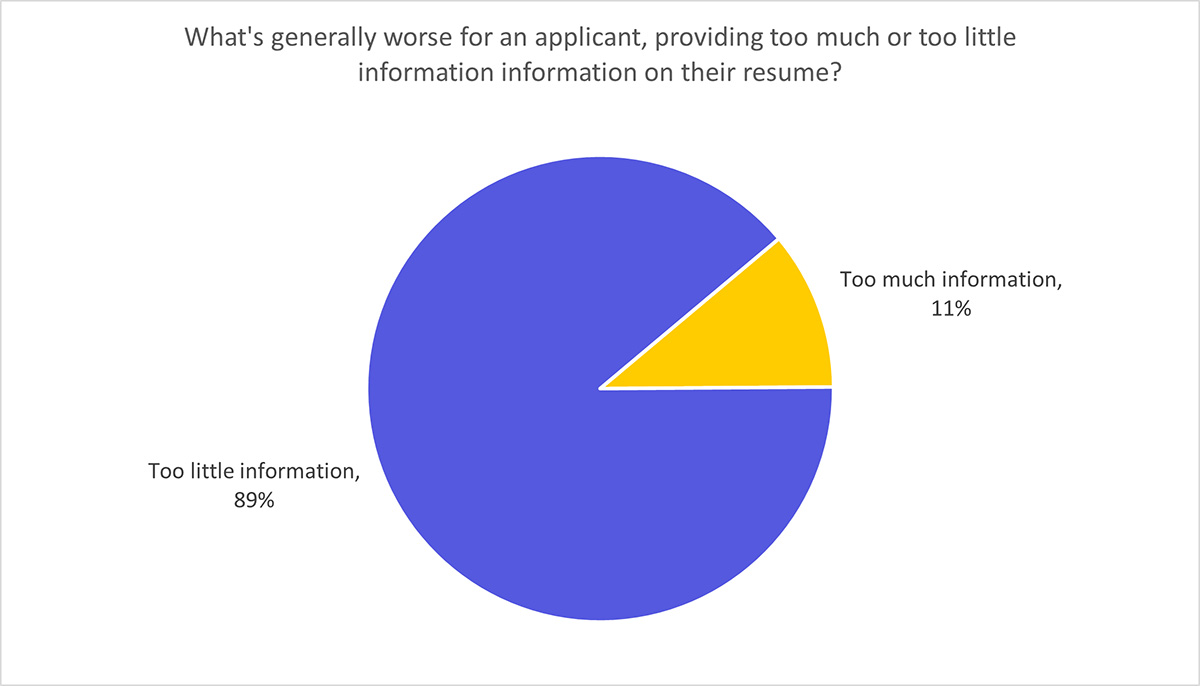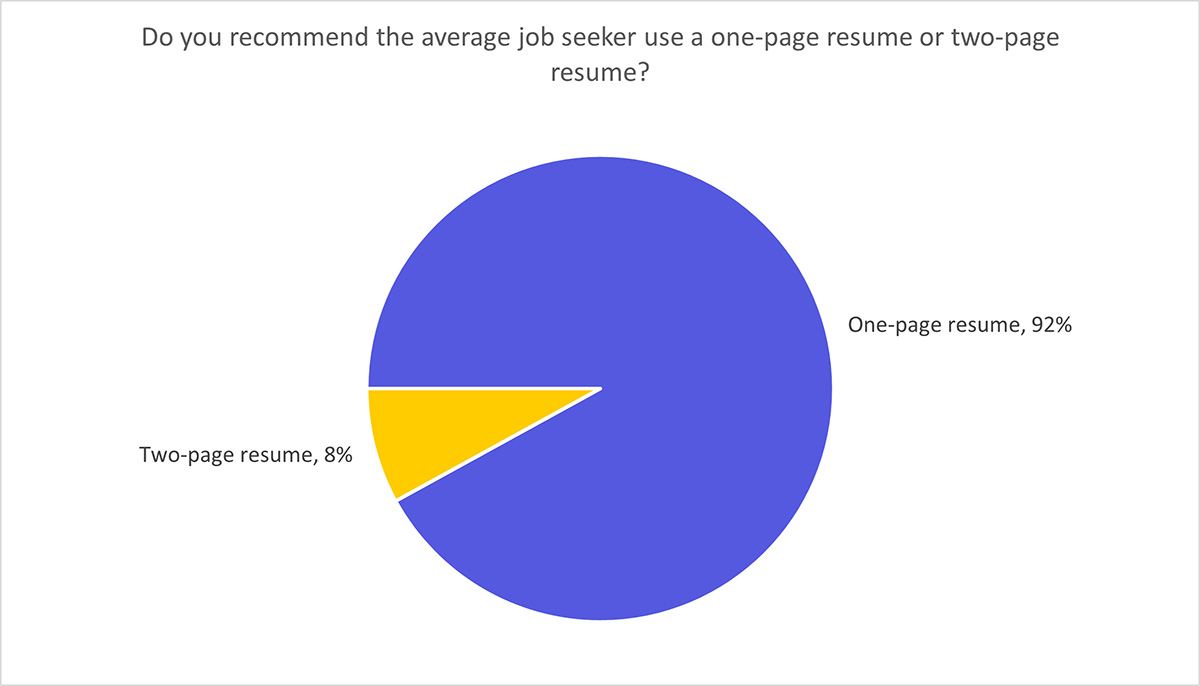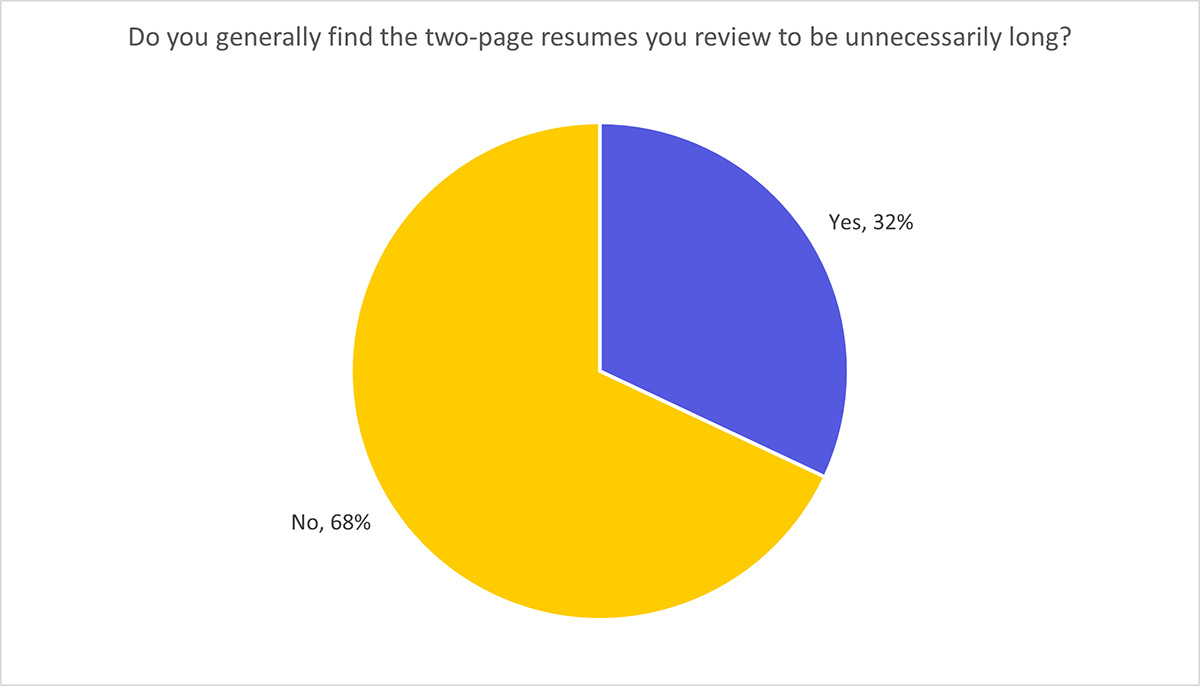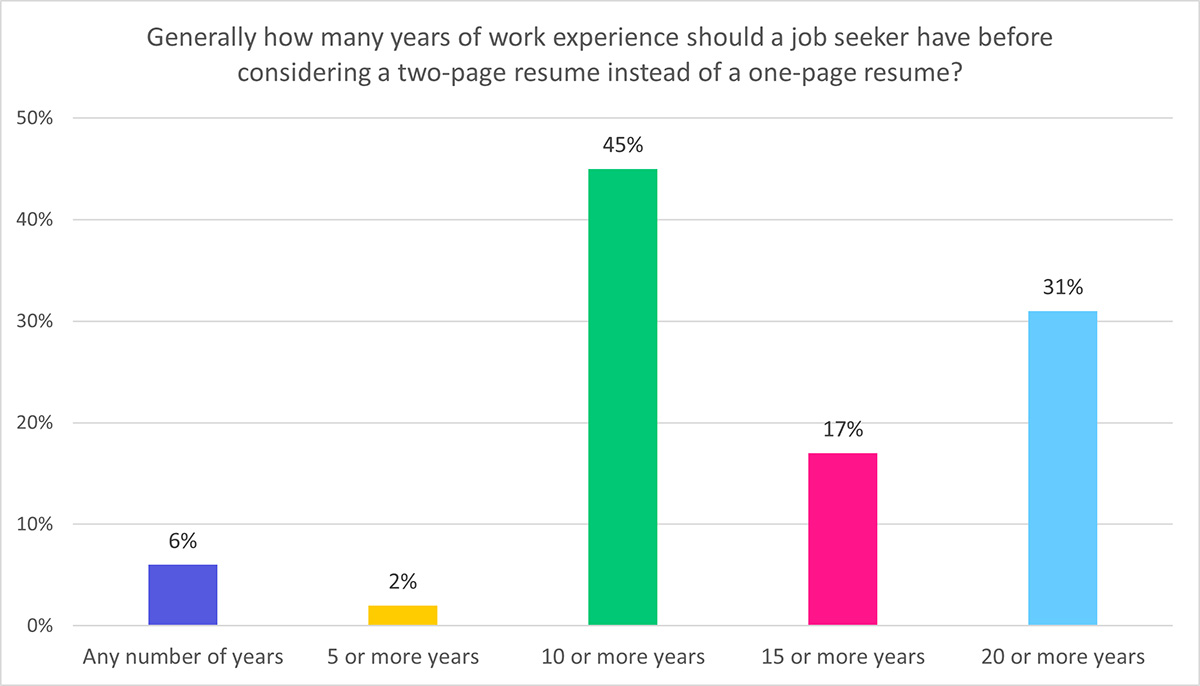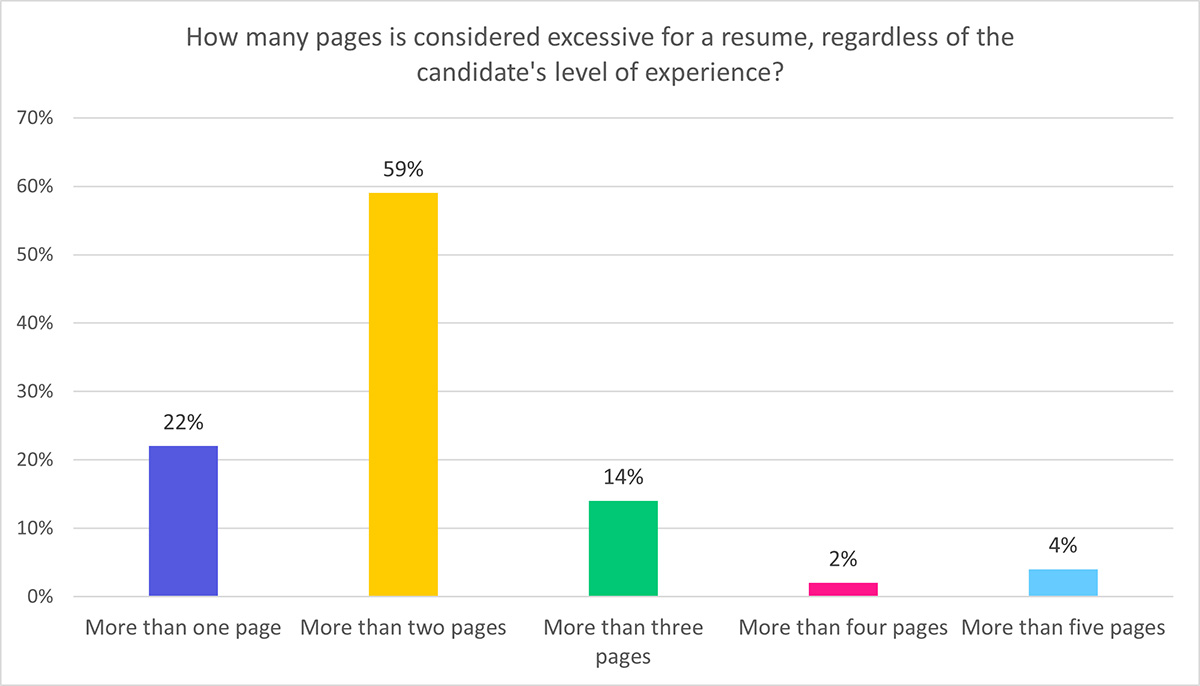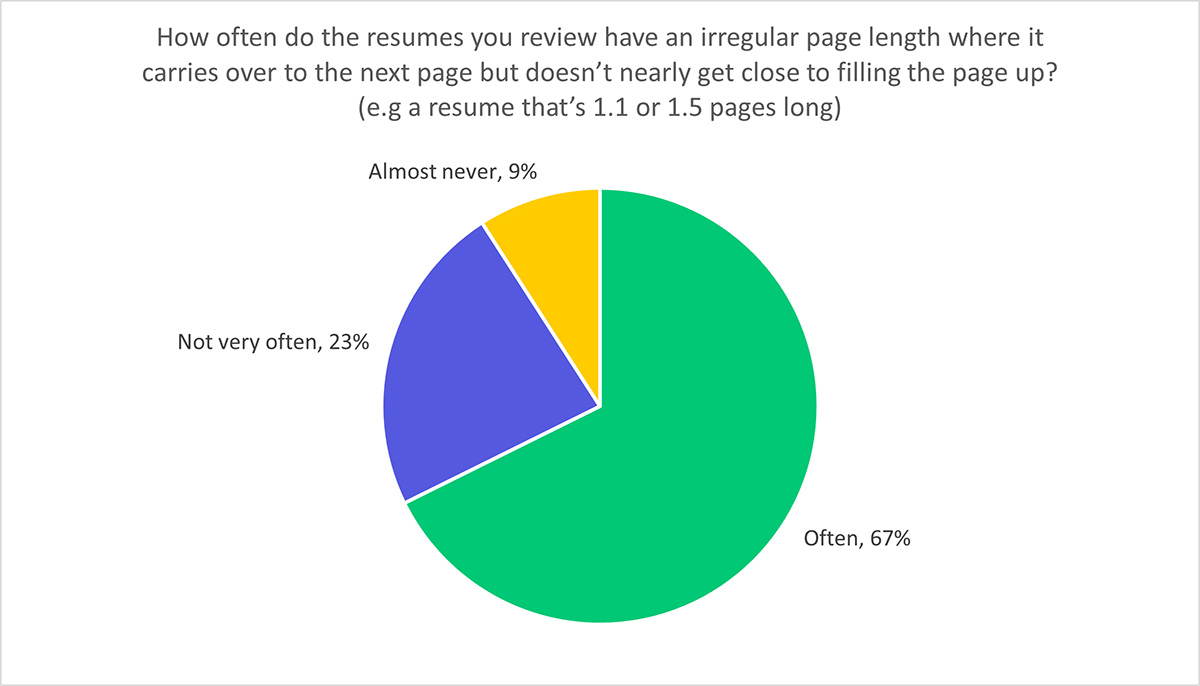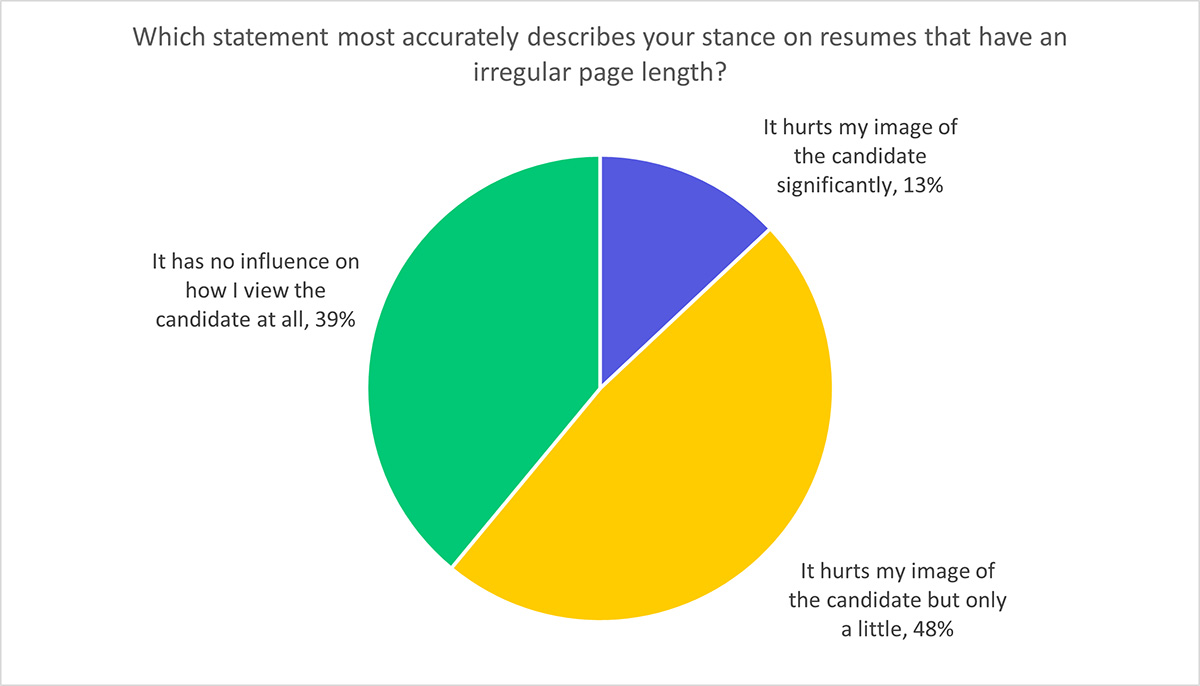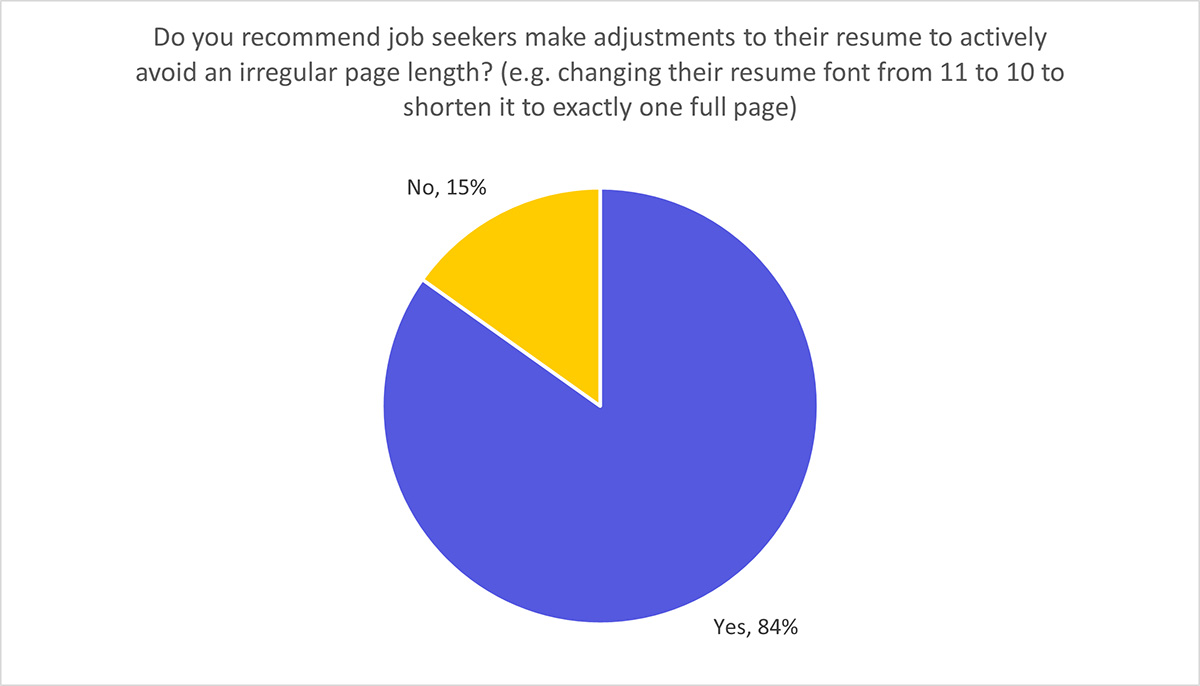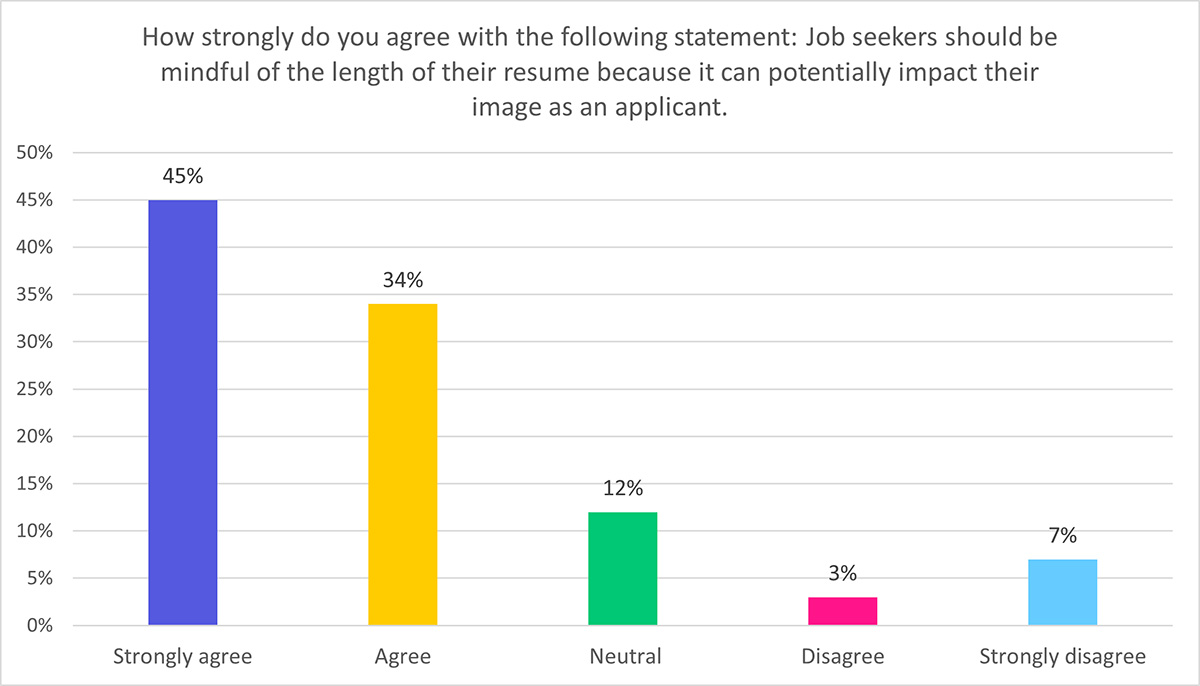Survey: How Long Should A Resume Be?
In the second of our multi-part series, we survey hiring professionals to find out their preferences when it comes to resume length.
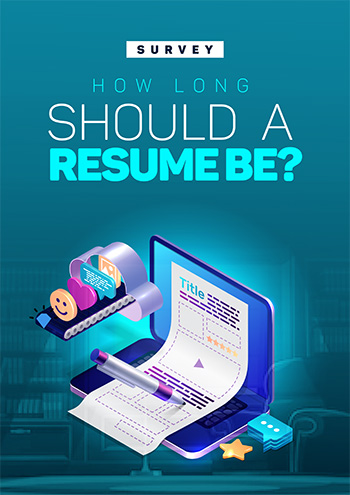
Survey Report
How long should my resume be? – This is one of the most common questions that job seekers come to us with during the resume writing process. Is a one-page resume the gold standard or is longer better in order to provide more detail and leave a more lasting impression? Does resume length even matter? To gain a better understanding on the topic, we surveyed 418 hiring professionals during the start of 2024.
Along with questions that tackle the one vs two-page resume debate, questions were also included about hiring preferences when it comes to irregular resume lengths. Resumes don’t always turn out to be exactly one or two pages long, and we wanted to learn more about how hiring professionals feel when they come across a resume that may be one and a half pages long or a resume that goes over the one-page mark by several lines. The survey questions and results are provided below:
How often are the resumes submitted to you around one page long?
How often are the resumes submitted to you around two pages or longer?
Are the resumes you review more likely to be too long or too short for your personal preference?
What’s generally worse for an applicant, providing too much or too little information on their resume?
Do you recommend the average job seeker use a one-page resume or two-page resume?
Do you generally find the two-page resumes you review to be unnecessarily long?
Generally how many years of work experience should a job seeker have before considering a two-page resume instead of a one-page resume?
How many pages is considered excessive for a resume, regardless of the candidate’s level of experience?
How often do the resumes you review have an irregular page length where it carries over to the next page but doesn’t nearly get close to filling the page up? (e.g a resume that’s 1.1 or 1.5 pages long)
Which statement most accurately describes your stance on resumes that have an irregular page length?
Do you recommend job seekers make adjustments to their resume to actively avoid an irregular page length? (e.g. changing their resume font from 11 to 10 to shorten it to exactly one full page)
How strongly do you agree with the following statement: Job seekers should be mindful of the length of their resume because it can potentially impact their image as an applicant.
Discussion
One-page resumes are the most common by far
Based on responses from the pool of hiring professionals, one-page resumes are far more popular than two-page ones. This being the case, it came to no surprise that when asked to recommend job seekers to use either a one or two-page resume, the overwhelming majority of respondents (92%) advised sticking to a one-page resume. This advice falls in line with much of the prevailing notion that resumes should be kept short and concise.
There is still a case to be made in favor of two-page resumes
While it’s true that one-page resumes are the most common, there may be advantages to having a longer resume. A little over 60% of hiring professionals said the resumes they come across are too short for their personal preference. The overwhelming majority of them also reported it’s far worse to provide too little information on a resume as opposed to providing too much, which is another nudge in the direction favoring a longer resume.
A resume with an irregular page length is definitely not recommended.
While there were mixed responses supporting both sides of the one vs two-page resume debate, there was a far clearer conclusion that could be drawn about resumes with an irregular page length – don’t use them.
Over 50% of respondents said that an irregular page length hurts their image of the applicant to some degree. Furthermore, the overwhelming majority (84%) of professionals recommended that job seekers actively make adjustments to their resume to avoid having an irregular page length. With hiring professionals surveying that they often receive resumes with irregular page lengths, putting in the additional effort to get a resume to an optimal length can be a competitive advantage for job seekers.
Methodology
This survey was conducted by ResumeGo using the survey platform SurveyMonkey. A total of 418 hiring professionals completed the survey between the dates of January 8, 2024 and March 1, 2024. Survey participants were individually screened to ensure they had recent hiring experience and resided within the United States. Incomplete survey responses were filtered out.
Are you a hiring professional? Share your expertise!
More surveys are to come and the more insight the better. We’re welcoming recruiters and hiring professionals to shed light on their hiring habits and preferences.


See other resume research we’ve done.
Data is used for everything, so why not for resume writing? See more surveys and field experiments we’ve conducted over the years that have influenced the way resumes and other job documents are written.
More resources for your resume and job search
Whether you’re a career expert or a total beginner, there’s always more to learn. Use these resources to level up your resume and build your career.
